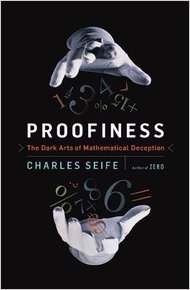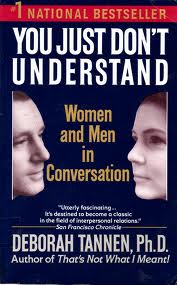Your Flirting Style
A study says self-awareness about your flirting style helps dating, helps relationships.
“Knowing something about the way you communicate attraction says something about challenges you might have had in your past dating life,” Hall said. “Hopefully, this awareness can help people avoid those mistakes and succeed in courtship.”
The five styles of flirting named: physical, traditional, polite, sincere and playful (all detailed in the article).
Friends with Cognitive Benefits
A study likes conversation.
Talking with other people in a friendly way can make it easier to solve common problems, a new University of Michigan study shows. But conversations that are competitive in tone, rather than cooperative, have no cognitive benefits…
Proofiness
 Beware of iffy-seeming stats: An interview with Charles Seife, author of Proofiness: The Dark Arts of Mathematical Deception.
Beware of iffy-seeming stats: An interview with Charles Seife, author of Proofiness: The Dark Arts of Mathematical Deception.
The issue is that in medicine or any other field of study, it’s really easy to show that two things are linked in some manner…A number of years ago there was a study that showed the higher your credit card debt, the worse your health. The conclusion seemed to be “Don’t carry a balance on your credit card, otherwise you’ll get sick.” It’s probably just the opposite. People who are sick are running up medical bills, missing work or maybe have lost their jobs. It’s not that credit cards cause bad health. It’s that bad health causes unpaid bills on your credit card.
On Procrastination
YANSS tackles procrastination at length…quoting this Jonah Lehrer piece along the way: “Don’t.” Thinking about thinking is ID’d as key:
The now you may see the costs and rewards at stake when it comes time to choose studying for the test instead of going to the club, eating the salad instead of the cupcake, writing the article instead of playing the video game…The trick is to accept the now you will not be the person facing those choices, it will be the future you – a person who can’t be trusted. Future-you will give in, and then you’ll go back to being now-you and feel weak and ashamed. Now-you must trick future-you into doing what is right for both parties.
Willpower Trumps
A study examines the idea of unlimited willpower.
Up until now, many researchers have asserted that the only way to stay focused during projects that require intense concentration is to seek occasional restoration with physical distractions such as food, rest, or other activity. They believe this will help a person feel recharged and get back on task. Apparently, this isn’t the case…
Sisters and Happiness
 Deborah Tannen looks at why having a sister makes people happier.
Deborah Tannen looks at why having a sister makes people happier.
My own recent research about sisters suggests a more subtle dynamic. I interviewed more than 100 women about their sisters, but if they also had brothers, I asked them to compare. Most said they talked to their sisters more often, at greater length and, yes, about more personal topics. This often meant that they felt closer to their sisters, but not always…
Love Science
PsychCentral sums up a meta-study, “The Neuroimaging of Love.”
Findings suggest falling in love can elicit not only the same euphoric feeling as using cocaine, but also affects intellectual areas of the brain…Researchers also found falling in love only takes about a fifth of a second.
Good Job/Bad Job
Bad jobs are bad–a recent study confirms it (PsychCentral).
“Our work found that people in poor-quality jobs—jobs which were insecure, did not provide future job prospects or had high levels of strain—had no better mental health than people who were unemployed,” said Dr. Leach.
Step it Up
A pedometer study shows Americans take fewer steps than people in other countries. One tidbit:
Being single was associated with taking more steps. Single people averaged 6,076 daily steps, compared to 4,793 steps for married people. Widowed participates moved the least, averaging 3,394 daily steps.
Might Be the Dopamine
A study finds a possible explanation why men are twice as likely as women to become alcoholics.
Dopamine has multiple functions in the brain, but is important in this context because of its pleasurable effects when it is released by rewarding experiences, such as sex or drugs…Despite similar consumptions of alcohol, the men had greater dopamine release than women.